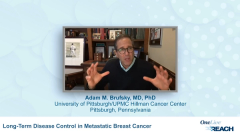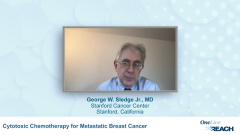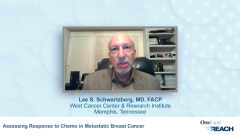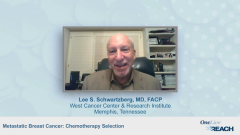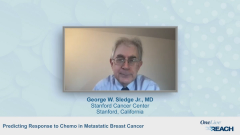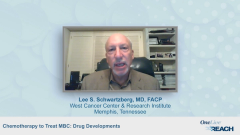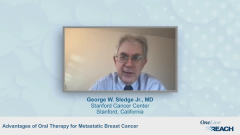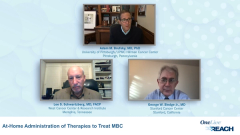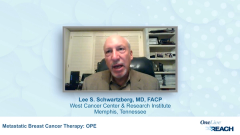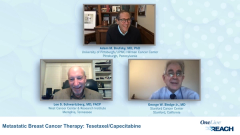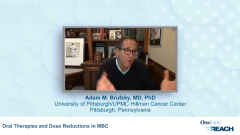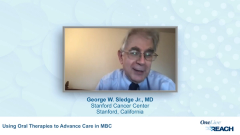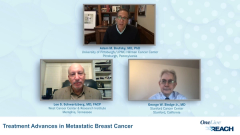
Using Oral Therapies to Advance Care in MBC
Episodes in this series

Adam M. Brufsky, MD, PhD: Great. This has been great. We had a great hour. The time just flew. Do you have any final remarks about oral therapy or chemotherapy more generally that you want to make? George, you can start first.
George W. Sledge Jr., MD: Chemotherapy is going to persist for a long time because it is efficient at killing cancer cells. It will persist until we get agents that are more effective at killing cancer cells. I do not know when those will come, and I do not know whether those will come. In the meantime, of course, doctors and patients in the clinic make decisions through shared decision-making if they are smart.
I always tell my patients something that Cliff Hudis, MD, told me once upon a time: when you have an oncologist and a patient in the room, there are 2 experts in the room. One is an expert on the disease and the other is an expert on the patient. Those 2 experts should agree with each other. The advantage of the oral therapeutics, of course, is that it makes that shared decision-making a whole lot easier in most cases.
Adam M. Brufsky, MD, PhD: Lee, anything final to say?
Lee S. Schwartzberg, MD, FACP: I agree with everything George said. The only thing I would add is that, as we talked about, if you ask patients about their preference if you say you are going to get a treatment that works equally well, they will pick oral therapy most of the time. It is convenient, and it may have less toxicity in the those we have been talking about. That is a big win for patients who are struggling with metastatic breast cancer. It is an exciting time to have these new options for patients when we sit down and talk to them about what all their options are.
Adam M. Brufsky, MD, PhD: Thank you both very much. This is fabulous. Thanks for your time. This concludes our program for this evening, and on behalf of the AJMC® and OncLive®, I would like to thank both of you very much. Everybody, have a good evening.
Transcript Edited for Clarity


